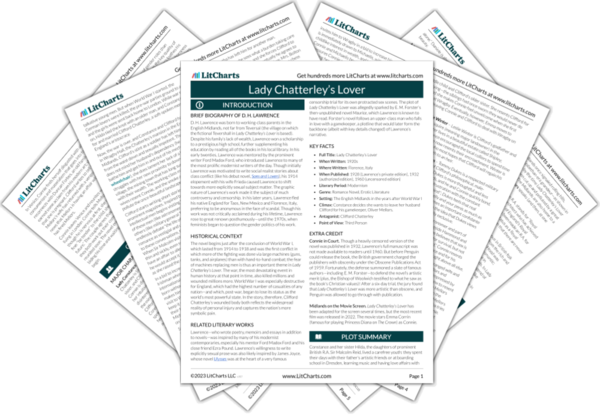Previous
Terms
|
Previous
Terms
|
Bolshevism Term Analysis |
Next
Collier
|
“There might even be real men, in the next phase,” said Tommy. “Real, intelligent, wholesome men, and wholesome nice women! Wouldn't that be a change, an enormous change from us? We're not men, and the women aren't women. Or only celebrating makeshifts, mechanical and intellectual experiments.”
“Give me the resurrection of the body!” said Dukes. “But it'll come in time, when we've shoved the cerebral stone away a bit, the money and the rest. Then we'll get a democracy of touch, instead of a democracy of pocket.”
